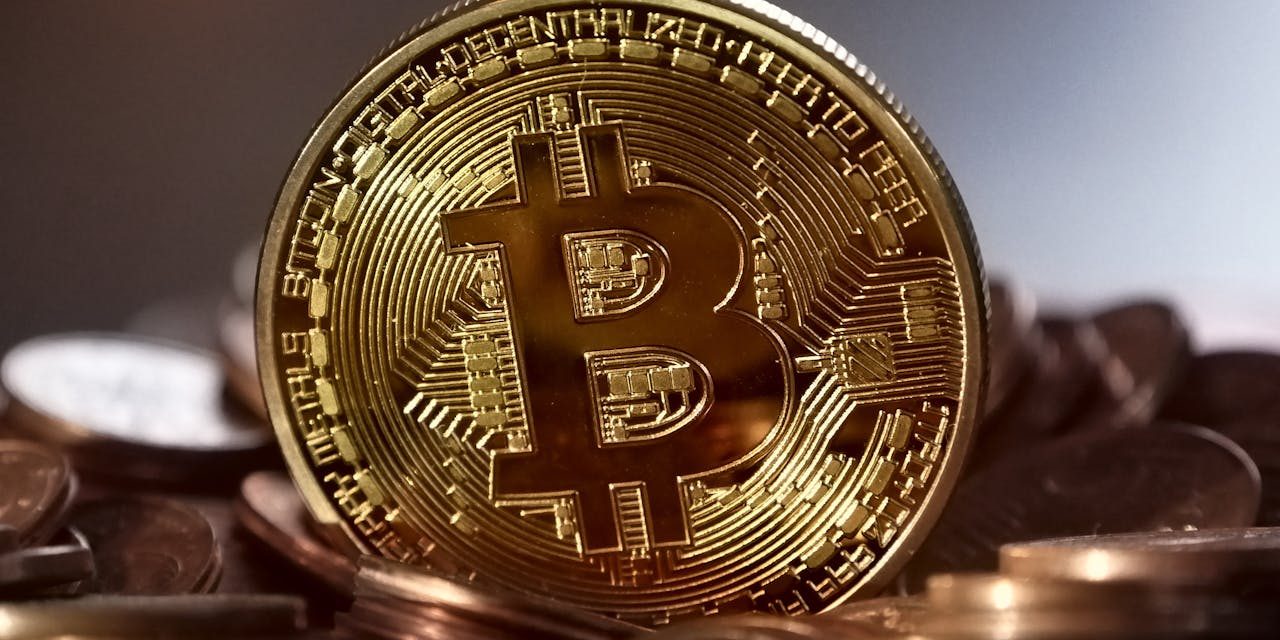In-game economies are evolving in quite unexpected ways, and the industry is far from stopping. In fact, some of the biggest game-developing companies are looking into Blockchain technology and a way to introduce cryptocurrencies as in-game monetary systems.
This isn’t something new. In fact, ever since we were introduced to Blockchain technology, we knew that the day would come when video games would transition to the blockchain just because it makes more sense, especially for digital items. With blockchain technology, you’ll practically own your character, and all of its cosmetics on the blockchain, meaning that it would have real-world value.
We’ve already seen crypto adoption in the online casino gaming space, so why not traditional video games? Click here to read more how to start gambling with Bitcoin.
To be honest, I’m quite surprised at why this hasn’t happened yet. Yes, we have some crypto games operating on the blockchain, but they are not Triple-A titles. There are some rumors that the most anticipated GTA 6 will have some form of cryptocurrency, maybe even be backed by Bitcoin, but we still haven’t seen an official announcement by Rockstar.
So, let’s say that Bitcoin is introduced to video games soon. How will it change the entire industry?
The Current State of In-Game Economies
In-game economies aren’t something new. Ever since game developers spotted the goldmine of microtransactions, players have been able to purchase virtual goods, from skins to in-game currency.
But this method is now outdated. People spend a lot of money on items that they don’t really own. They are stuck in the developer’s database, and if their servers shut down, that’s the last time you’ll see your in-game item.
This is why cryptocurrencies and blockchain technology actually make sense in the world of video games. You get your digital items, probably in the form of NFTs, which are safely stored on a Blockchain, and can even be moved outside of the game.
On top of that, you have an in-game currency like Bitcoin that powers the game’s economy.
Try selling your hard-earned Fortnite skin on eBay? No can do—it’s tethered to that game. Bitcoin and other cryptocurrencies could change all of that by making these assets tradable and potentially valuable in the real world.
So, why is this revolutionary? Well, the global gaming industry is set to reach $250 billion by 2028 and a huge chunk of that is driven by in-game purchases. So, introducing a crypto solution will change the trajectory of the entire video gaming industry.
Why Bring Bitcoin into Gaming?
So, what’s the big deal about integrating Bitcoin into games? Here are some game-changing possibilities:
- Real Ownership: With Bitcoin, players can own digital assets outside the game, thanks to blockchain. Instead of a game company having total control, players could own items with real-world value that they can transfer or sell outside the game environment.
- Seamless Trading Across Platforms: Imagine trading a sword from one game for armor in another! Bitcoin could create a decentralized marketplace where items are tradable across games and even platforms, all without the middleman.
- Play-to-Earn Models: Blockchain-based games like Axie Infinity have already shown how players can earn cryptocurrency as they play, turning time spent gaming into actual income. This could redefine gaming as a legitimate income source, especially in regions with limited economic opportunities.
How Could Bitcoin Reshape In-Game Marketplaces?
Here’s where things get really interesting. Bitcoin integration could open up whole new economies in gaming. But how?
- Market Freedom: In traditional gaming, in-game economies are controlled by developers. Want a new sword? That’ll be $5.99, thank you very much. Bitcoin could allow these transactions to happen peer-to-peer, letting players set their own prices in a marketplace without centralized control.
- Reduced Fraud: Online marketplaces for virtual goods are plagued by scams, with estimates suggesting $1 billion in fraud across the gaming industry each year. With blockchain, every transaction is public, secure, and verifiable, drastically reducing the risk of fraud.
- Portable Digital Goods: Currently, when you stop playing a game, you lose access to your items. By storing items on the blockchain, they could exist independently of the game itself. This means you could carry a sword from Game A over to Game B, assuming both games agree to support that ecosystem. This could become a reality with decentralized blockchains supporting such ownership across different games.
The Play-to-Earn Revolution
Play-to-earn is already causing a buzz in the blockchain space. In games like Axie Infinity, players can earn tokens that can be traded for other cryptocurrencies or fiat currencies.
Some players in the Philippines have reported making a decent income through play-to-earn gaming, especially during the economic downturns brought on by COVID-19. The game’s revenue reached $2.7 billion annually, fueled largely by its play-to-earn model.
For many, this is a potential lifeline, turning a fun pastime into a viable side income. If more mainstream games adopt a similar model, we could see a world where gaming not only costs less but actually pay you back!
Are There Risks?
While the potential is thrilling, there are risks considering:
Bitcoin’s value can swing wildly. Imagine buying an item in-game for $10 worth of Bitcoin, only to have it worth half the next day. This could make transactions a gamble, especially for young or inexperienced players.
Additionally, governments worldwide are tightening regulations around crypto. Countries like China have outright banned cryptocurrency transactions, and other governments are placing restrictions to prevent fraud and protect consumers. How these regulations will affect gaming companies looking to integrate crypto remains a question.
So, bringing Bitcoin or blockchain technology into the story of video games will be a difficult transition, but it is definitely the right path for the gaming industry.










![[Rumor] Chrono Trigger remake or remaster could already be in development](https://vgleaks.com/wp-content/uploads/2026/02/chrono-trigger-150x150.jpg)


